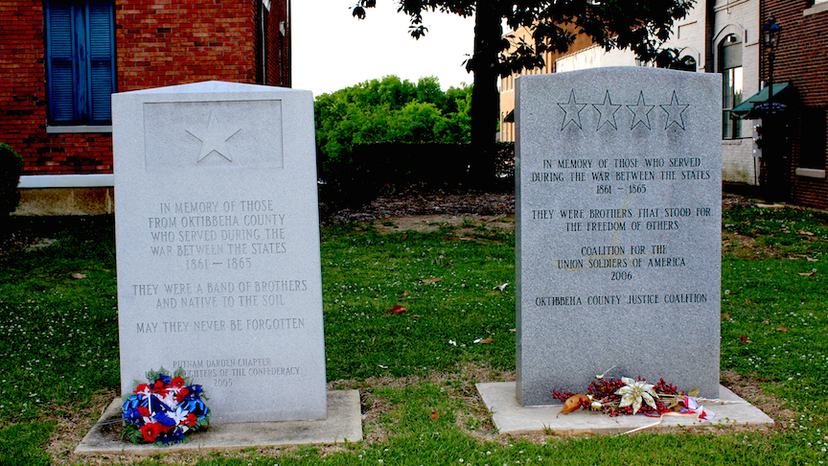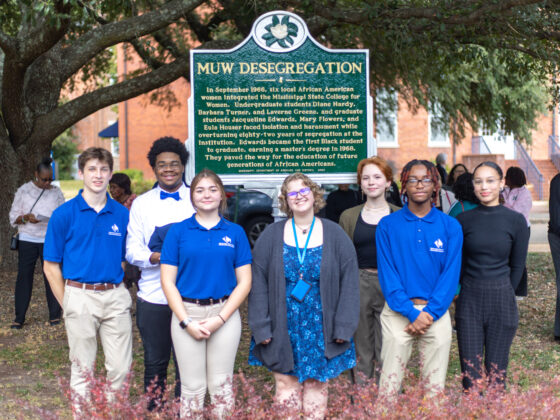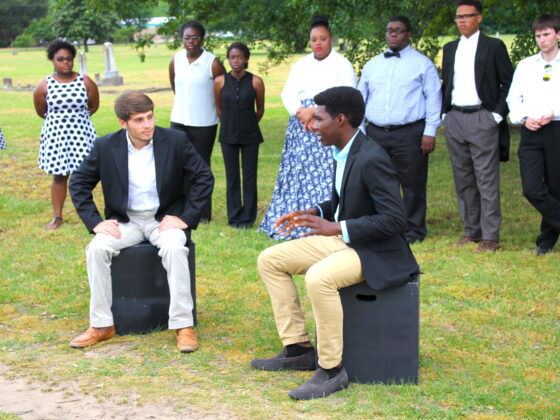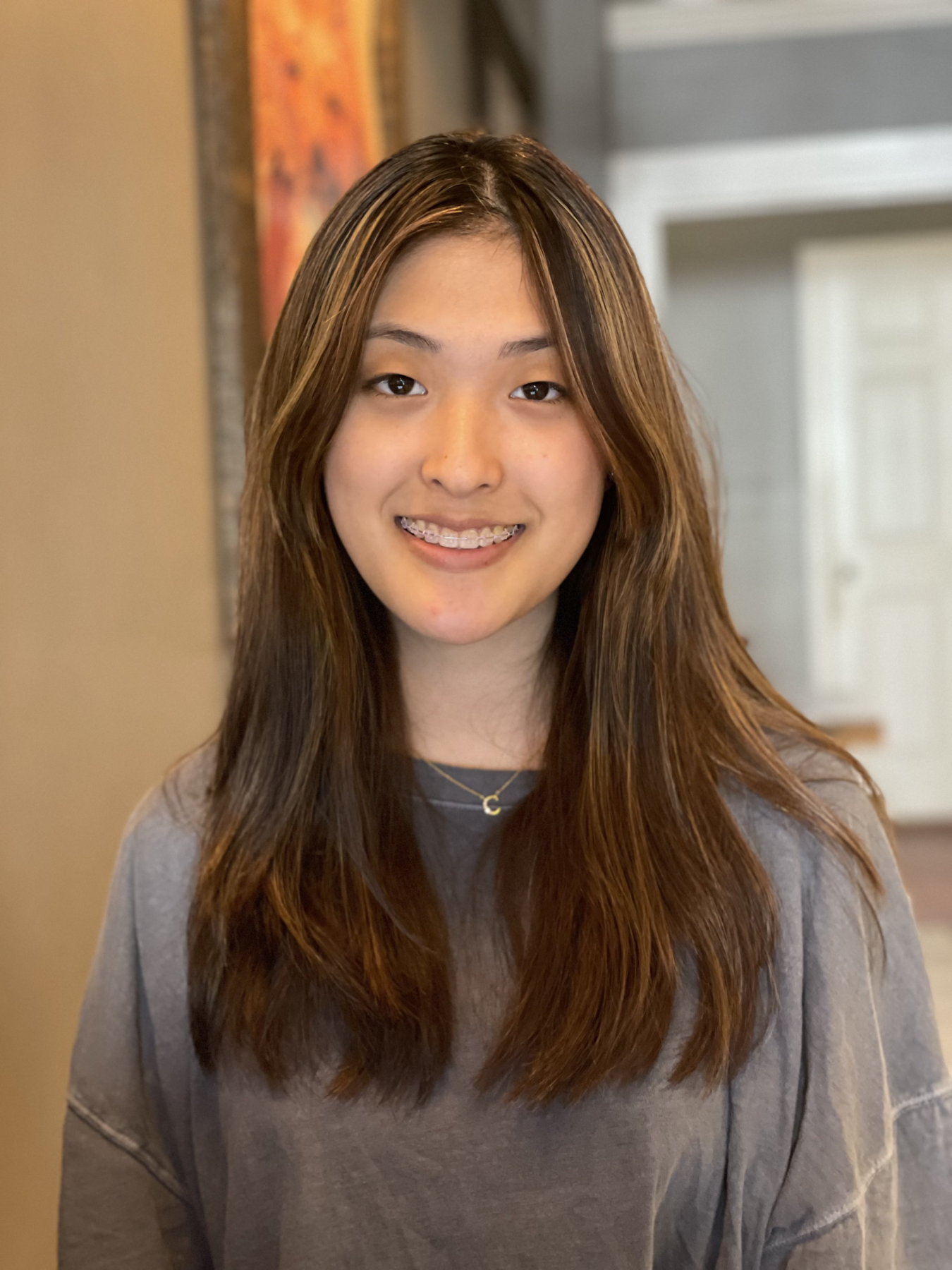During the late spring, I visited the Mississippi School for Mathematics and Science (MSMS) in Columbus, Mississippi. It is a public, residential school for students from a very wide range of economic, educational, and racial backgrounds, from all over the state. You can guess from the name that the school has a very strong math, science, and computer curriculum. But as one of the school administrators told me, the humanities program is its “secret weapon.” Two days ago I wrote about the school here.
One of the MSMS English teachers, Thomas Easterling, had originally told my husband and me about the school. After I had met some of his students, I asked Easterling if he could ask his students to write short essays about the school and how it fit into their lives in Mississippi. They had a very free rein to discuss whatever was most on their minds. The five essays below, all from seniors, may give you an idea of the role the school plays in this state, and the effect it has had on students who go there. Thanks also to Emma Richardson, the creative writing teacher at MSMS.
The first is by Kimberly Sanford, a senior from Stonewall, near Meridian in east-central Mississippi.
Where I Belong
Sometimes I believe the soul of Mississippi is as dark and bottomless as muddy rivers settling through rolling hills. These contaminated waters seek out the unique and attempt to wash away the scent of rebellion, or the hope for change. My greatest fear is to wander aimlessly into those waters, be molded by conformity, forget my passion, my compassion, and acquiesce to the current of complacency. As I dig my naked feet into the burning red clay on my middle-of-nowhere dirt road, I cannot help but feel the history of Mississippi, rich as the soil, leeching into my skin. Despite the intense heat, I shiver. Turning on my heels to give one fleeting glance to the dancing colors of the fiery sunset, I am sure of only one thing: I do not belong here.
As I grasp the battered storm door of my unleveled mobile home, I envision the scene that awaits me. Sitting at the tiny table overwhelmed by sales papers, dirty dishes, and leftover fried chicken, my twenty-two year old sister, Dorothy, will be nose deep in a GED book or piecing together a jigsaw puzzle on the dirty glass top table. Her eyes will be dull; their light vanished. After her failed attempt at happily-ever-after—a broken marriage and miscarriage at sixteen—she never smiles. Mama is “slaving” over the stove, cupping the phone with her neck, speaking in her fake voice as she nods at the complaints my eldest sister Susan has about her husband, six kids, and college courses. Silent and solemn, my mother’s third husband lies back in his grimy work boots, faded blue jeans, and ancient camouflage cap.
I open the door and rapidly tiptoe down the narrow hallway without bothering to confirm my suspicions. I shut the door as quietly as possible, hoping my presence will remain unknown.
My life overflows with brilliant, beautiful women who played tremendous roles in raising me—brilliant and beautiful women who have abandoned their independence. They are uncomfortably stuck, living complacently, blaming the universe for the “hardships” bestowed upon them at birth: gender, class, culture. I feel as if my life is a cycle, a re-run with the same endings, same mistakes, and same lack of effort. I’ve had to look elsewhere for inspiration, trying to fashion a community of the fictional and the distant: Elizabeth Bennet, fiercely obstinate and undeniably sharp with wit, deep in the pages of Pride and Prejudice; Helen Thomas, a journalist determined to ask the silent question in the room; bell hooks, the woman who sparked my passion for the study of feminism.
Still, I worry that traces of Mississippi embedded inside of me will be my downfall, that I will become my mother and sisters, that femininity equals weakness. The women around me have been victims of misogyny; this is true. However, the real reasons they are stuck are lack of faith in themselves and ignorance of their true capabilities. I may never be able to help them realize their strength, but it’s not too late to find my own and help the next Mississippi girl find her path in life. Understanding will give me that power, and so I am determined to absorb, live and breathe every aspect of women’s, gender, and sexuality studies.
Reading about the first wave of the feminist movement always makes me feel a little cheated, I wish I could have been there with every fiber of my being. But then I realize that of course it’s not over, not even close. We still need feminism. I still need it.
Next, by Rachel Jones, a senior from McComb, in the southwestern part of the state.
Journey through the Rain
Raindrops in Mississippi are always fat. They fall from clouds no longer able to hold them and slide through the humidity, making a murky storm soup suspended in the atmosphere. In an early memory, I am standing outside the Boys and Girls Club peering into the soupy haze of this particular storm, waiting for my mother. Our routine is to walk, often hand in hand, through the “old projects” to our home in the “new projects.” Will we walk today? In a soft, rattled voice, I tell Mr. Tony, the counselor, that she’ll be here soon– and she is. Dainty, and cowering beneath the barrage of wind and rain, she stands behind a tree, pulls her flimsy hood tighter over her face and flicks her wrist, beckoning me to come forward.
My mother feels it is her duty to teach me everything: how to long divide, how to play defense on the soccer field, how to follow through with my backhand, how to control my breathing when I run, how to protect myself, how to make one night’s meal last a week. She force feeds me each lesson with the firmness and sass I’m sure only a Southern woman can. But I ate my most valuable lesson when I saw her standing in the rain, soggy and focused: No matter the severity of the storm, if you have somewhere to go, you will just have to walk.
The little storms of life have left me doused. The wind of my parents’ perennial unemployment has blown away my umbrella. The chill of watching my mother scrape together dollar bills and dirty quarters to pay rent and wash our clothes has frozen me to the bone. The endless drizzle of watching my mother scrape alone, as the convicted felon I call “father” keeps his distance, has soaked through my raincoat.
Still, with no forecast, new days come carrying with them a heavier downpour. Such as the days I’m not sure how to do my Organic Chemistry homework. Such as the days I have ten essays to write. Such as the days I have sore legs from playing soccer and cross country practice at 6:30 the next morning. I can’t think because it’s one o’clock in the morning. I’m running on bland coffee and four hours of sleep and the conversation with my mother that morning informing me that she is unable to pay rent this month as well, so I sit under the humming lamp of my desk, gazing at my Physics textbook and the “C” on last week’s calculus quiz, unaware that tomorrow I’ll be told my father lost yet another job.
Despite the rain, I have a destination that I’m determined to reach. My destination is having a thorough understanding of calculus. It’s having a killer serve. It’s running a marathon. It’s executing a flawless bicycle kick. It’s writing a set of words that thousands of people will digest and want more of. It’s looking into someone’s eyes and knowing I’ve helped. My destination is excellence. I’ve come a step closer to my destination by leaving my mother and brother four hours away to study at the Mississippi School for Mathematics and Science, which simply adds to my worries, but also to my optimism.
Skies grow overcast, but I’ve learned to disregard them since I find the prospect of failure more foreboding. I have places to go, and it’s always going to rain, but as long as my legs can move, I’ll walk if I have to.
Next, by Brendan Ryan, a senior from Diamondhead, near the Gulf coast.
One of my favorite things about living at a residential high school four hours from my hometown is the car rides home. The trips begin with Mary, Alice, and I forcing our belongings into the trunk of Mary’s car until the tiny car is ready to burst like the pregnant cat that lives behind the library. Mary likes to make sure we don’t forget anything before leaving campus. “Nobody forgot phone chargers, toothbrushes, or medicine, right?”
Mary is going to be a great mother one day. She thinks of everything. “Everyone went to the bathroom before leaving the dorm, I hope. We aren’t stopping for an hour and a half at least.” Alice nods her head, but deep down we all know that her bladder is the size of a pea, and we’ll probably need to stop before getting out of Lowndes County.
An hour into the rides, Alice announces that she’s about to burst from the drop of water she drank right before leaving. Mary leads the car into a less than desirable gas station, An unknown gas station in an area without cell service is never a good sign. I decide to take the opportunity to stretch my legs and relieve myself in the unsanitary bathrooms. The putrid restroom has various male products on sale on the wall including Osama bin Laden-themed condoms. The display sports a happy picture of bin Laden, fully bearded. I’ve often wondered what’s in those wrappers, but I’ve always been too frugal to buy them. I, for one, know that I would never trust my birth control to a terrorist.
Alice and I like to catch Mary up on all of the sexual innuendos she doesn’t know. “You don’t know what that is?’ is Alice’s favorite thing to say right before launching into a vulgar discussion on the meaning of an inappropriate double entendre. Our car rides are more useful than any sex-ed class.
The great thing about our car rides is that we have an agreement: “What happens in the car stays in the car.” Alice and I are the types that like to be deep in everyone’s business, but we aren’t the type to spread the gossip like an incurable disease. We incubate it in the car, never letting it surface.
The conversations in the car peak when we finally reach the Gulf Coast. We’re all brimming with excitement to see our families. I can feel the humidity on my skin through the car windows awe glide over the bridges that guide us over the Mississippi wetlands. The Coast Electric power plant glistens like the North Star guiding us home.
Mary drops me off at a gas station that actually has a chain name, and I search for my parents ‘car. When I find them, I wave goodbye to Mary and Alice, already eager for the ride back to school in three days.

Next, by Sabrina Moore, a senior from Starkville, just west of Columbus.
What My School Means to Me
A junior student with shaggy jet-black hair peers into the microscope, intent on spotting the streptococci that he cultured earlier this week. His hands, colored with the crystal violet dye he used to stain the bacteria, swiftly adjust the dials to focus the image as he taps his toes to the Van Halen song playing from the radio. He spots what he’s searching for and grins, snapping a picture and scribbling down some notes, nodding to himself at a job well done.
A hundred yards from the building, a senior girl darts across the freshly manicured field, cutting the ball back and forth and wreaking havoc on the other team’s defense. She winds up for the shot just outside the eighteen, striking the soccer ball hard with her right foot, and watches it sail, flying into the top right corner of the goal, just centimeters from the goalie’s fingertips. Cheers erupt from the sideline and she is caught in a moment of bliss as she is surrounded by the blue jerseys of her teammates and smothered with high-fives and congratulations.
Back in Hooper Hall, a second year physics student sits rooted to his seat as the teacher manipulates equations on the board, hypnotizing him with derivatives that dance across the whiteboard, explaining everyday phenomena in mathematical terms. The student picks up his pencil, furiously scribbling his notes, entranced and determined not to miss a single word.
The trio meets for dinner, joining a table packed with MSMS students eager to discuss everything from international politics to fashion fads. The latest “promposal” is brought up just as quickly as Nobel Prize winners; “water you doing?” and physics puns spark an equal amount of joking groans and tears from sincere laughter. The novels to read, from Austen to Faulkner, tests to study for, from Analytical Chemistry to Human Infectious Diseases, and research papers to write whether it’s economics or Tales from the Crypt, are momentarily forgotten as the group savors the moment with each other.
MSMS is often referred to as the most diverse square mile in the state of Mississippi, alluding to academic interests, ethnicities, belief systems, aspirations, and much more. It’s true. This is the place kids come to be themselves, chase their dreams, widen their horizons, and sneak a taste of what they’re capable of. This is the place kids come to play, to laugh, and to learn. This is home.
Next, by Joseph Messer, a senior from Carriere, near the Louisiana border in the south.
In the Frasier dorms, towards midnight, after a physics problem set and a Wordsworth paper, on cushy couch cushions, two roommates. Alex and I play FIFA. A cockroach scuttles across the floor in front of the X-box. I clamp a coffee mug over it. Cup-trapped cockroaches, discarded clothes, and open textbooks cover grimy tile. Last night’s Chinese food wafts from the trash can, where the bin has long since overflowed.
You always do that,” Alex said.
“What?”
“Try to dribble through everybody.”
“I always win, don’t I?”
“Yeah? What about three weeks ago?” Alex gets defensive when I question his ability to play videogames.“We tied.”
“You didn’t win, did you?” My cell phone rings. I pause the game and Alex throws up his hands, as if protesting a bad penalty call.“Hello?”
“Hey, honey, how’s school going.” It’s my mom. Alex motions for me to keep playing, and I press “X” on my controller.
“Good,” I said.
“Are you eating well?”
“Uh.”
“Are you listening to me?”
My player ran along the sidelines, crossed— Dang, I missed the header.
“I said, ‘Are you eating well?’”
“Some.”
“Joseph, I worry about you. I practically don’t sleep at night”
“I—I’m sorry, Mother.”
“You’ve got to think about someone other than yourself.”
“I do.”
“What about your poor mother?”
“What?”
“Do you ever think about how hard it is for you to be up there?”
My mom urged me to apply to the Mississippi School for Mathematics and Science, and smiled at my acceptance letter from Stanford. My mom also cried after she dropped me off, and can’t imagine me being more than one hundred miles from home.
“I’m sorry for not thinking about you.” And I am, but I can’t tell her how I really feel because I am behind 2-1 at halftime.
“It’s alright,” she said. “I’ll be okay. I’m just a stranger to my own child.”
“Ma, that’s not true.”“I remember when you were so young. I could hold you in my arm, you know.” I knew where this was heading. Right down memory lane. “When I was cleaning out your closet today, I found a stuffed animal.”
“Which one?”
“Ham. Do you—”
“Yeah, you gave him to me after Hurricane Katrina.”
“You slept with him every night, and you were always asking me about him. Did Ham do this? Did he do that? What did space look like? Were there hurricanes in space? If not, can we move to space?”
“Ma, could he really talk with his hands, Ham that is?”
“I remember telling you that.” On the other side of the telephone, she pauses, recalling past times. “He could, you know. They say when he passed through orbit, he turned to the spacecraft’s camera and signed Home. Home.”
“Ma, you know that no matter where I go, home will be with you.”
“I know.”
“Goodnight, Ma.”
“Goodnight, son.”
I lose the FIFA game. Alex and I agree to play tomorrow. As I lay in bed, I dream about being home, with a creaky porch swing and an oak in the side yard, where I helped my Mom build a tree house. The cup-trapped cockroaches are still there, or rather here. Here is where home is. But as I drift to sleep, I think that home is also wherever I make it: at Stanford or at my mother’s home or at the Mississippi School for Mathematics and Science.




